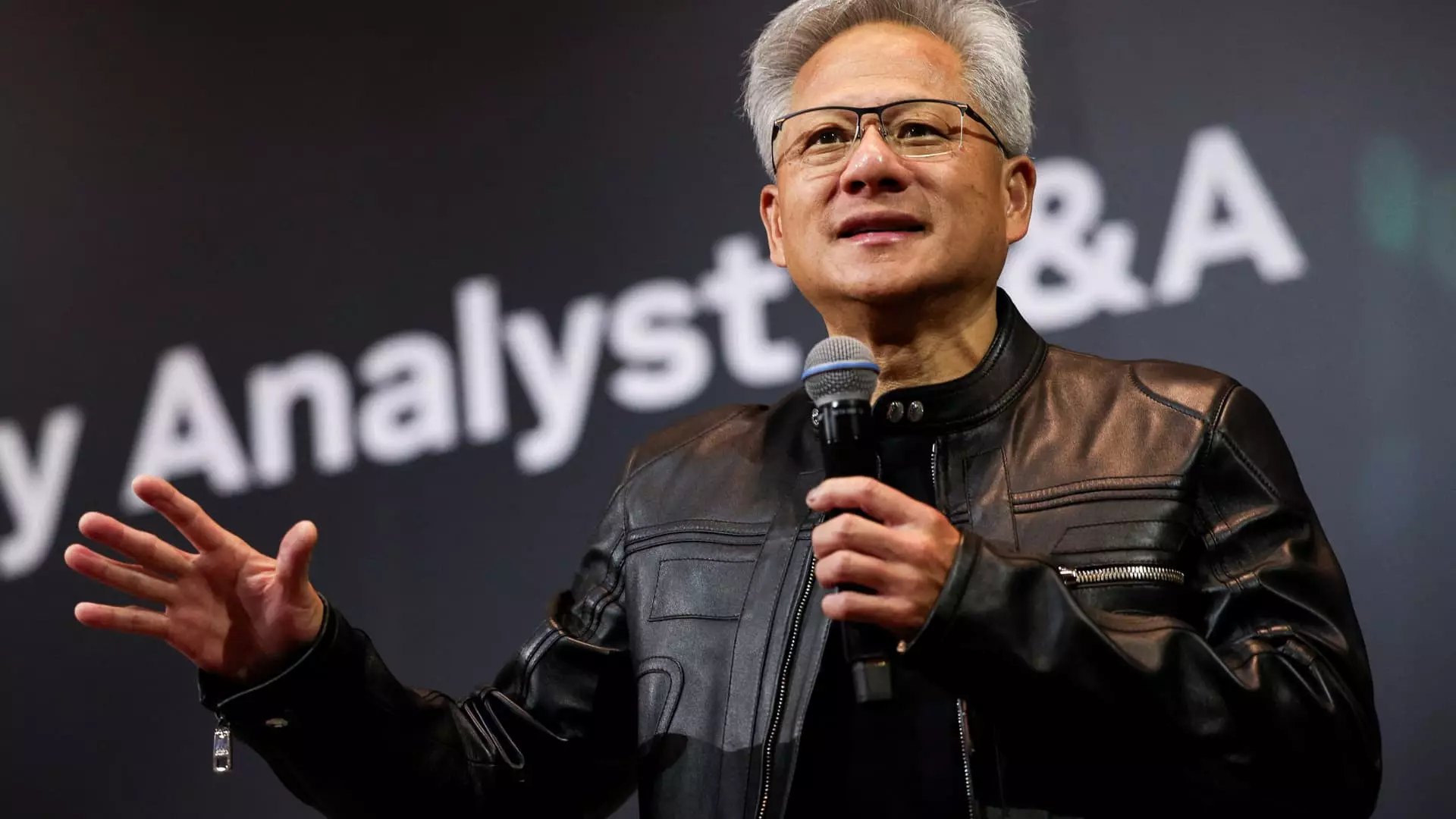Nvidia’s CEO Jensen Huang recently delivered a striking endorsement of Taiwan Semiconductor Manufacturing Co. (TSMC) during his visit to Taiwan, labeling the company as one of the greatest enterprises in history. Such rhetoric isn’t merely promotional; it underscores the strategic importance of TSMC in the global technology landscape. Huang’s praise is a clarion call acknowledging TSMC’s unmatched prowess in advanced chip manufacturing, which positions the company as a critical pillar supporting not just Nvidia’s innovations but the entire high-tech ecosystem. This unparalleled respect signals a broader recognition—a recognition that TSMC’s leadership is vital for the future of artificial intelligence, cloud computing, autonomous vehicles, and countless other technological frontiers.
Huang’s comments go beyond simple admiration; they serve as a calculated statement reinforcing Taiwan’s strategic role amidst global geopolitical tensions. The fact that Nvidia, a leading American chipmaker, openly praises TSMC suggests that the company views TSMC’s continued dominance as essential for stabilizing the global semiconductor supply chain. With TSMC actively developing six new products tailored to Nvidia’s next-generation AI chips, the mutual dependency is clear. These collaborative efforts also highlight Taiwan’s position as the epicenter of cutting-edge chip fabrication, a domain where technological sovereignty is increasingly intertwined with geopolitical influence.
Shifting Geopolitical Tensions and Economic Alliances
The timing of Nvidia’s endorsement couldn’t be more consequential. As Washington contemplates strategic investments in TSMC and other local champions through initiatives like the CHIPS Act, there’s an unmistakable signal that the United States aims to fortify its semiconductor independence. The prospect of the U.S. government taking equity stakes in firms such as TSMC and Intel reflects a desire to create a “protected” American supply chain capable of resisting Chinese and other foreign pressures. However, this move also stirs a complex geopolitical debate: is such involvement a strategic necessity or a risk of further entanglement?
The Biden administration’s push, exemplified by promises of billions in U.S. funding and incentives, aims to reduce reliance on Asian manufacturing hubs—particularly Taiwan and South Korea. Yet, the reality is that for now, TSMC remains the global leader in process technology and capacity. Its expansion plans, including a monumental $165 billion U.S. investment, reveal ongoing confidence in Taiwan’s pivotal role despite rising geopolitical costs. Huang’s remarks on the importance of Taiwan’s workforce and their work with Nvidia demonstrate an acute awareness of the economic and national security implications—technology is now inseparable from geopolitics.
Correspondingly, these developments highlight a paradox: while U.S. policymakers seek to diminish dependence on Taiwan, they implicitly recognize that TSMC’s technological edge is irreplaceable. The government’s internal debates about acquiring a stake in TSMC reveal tensions between strategic autonomy and economic pragmatism. As Washington considers taking minority stakes in firms like Intel or even TSMC, the question becomes whether these moves are to bolster supply security or whether they risk fostering new vulnerabilities.
Innovation, Growth, and the Resilient Taiwanese Tech Ecosystem
Beyond geopolitics, Nvidia’s commitment to Taiwanese expansion signifies the resilience and vibrancy of Taiwan’s tech ecosystem. The planned “NVIDIA Constellation” office exemplifies Nvidia’s strategic intent to deepen its roots within Taiwan, harnessing local talent and fostering innovation. At a time when global chip demand is soaring and supply chain disruptions remain a pressing concern, Nvidia’s investments affirm its confidence in Taiwan’s capacity to deliver.
Huang’s emphasis on the growing workforce and collaboration with local chip firms and system integrators underscores a broader truth: Taiwan’s tech industry is a powerhouse that continues to drive advancements in semiconductor manufacturing. Moreover, the company’s efforts to resolve operational issues with local authorities demonstrate a pragmatic approach amid geopolitical uncertainties. Nvidia is betting on Taiwan’s stability and expertise to fuel its future ambitions, even as tensions escalate elsewhere.
However, Nvidia’s recent actions also reveal a nuanced strategic stance. The decision to temporarily halt some chip exports to China—prompted by security concerns over the H20 processing units—illustrates the delicate balancing act of maintaining international market access while safeguarding technology. The China-U.S. tech rivalry is intensifying, and Taiwanese firms like Foxconn and TSMC are caught in the middle. Nvidia’s cautious approach reveals how geopolitical considerations are now embedded into corporate decision-making at the highest levels.
The Specter of Geopolitical Competition Looms Large
The emerging narrative is one of relentless competition, where technological supremacy is the new battleground. Nvidia’s outspoken praise of TSMC accentuates how vital these companies are to national security and economic longevity. As China raises security concerns over certain chips, and the U.S. explores strategic stakes in companies like TSMC, the global landscape is shifting toward a more fractured, yet intricately connected, web of interests.
The current scenario exemplifies a broader trend: the intertwining of economic objectives with geopolitical ambitions. While Nvidia champions Taiwan’s technological leadership, it also navigates a treacherous political environment. The Chinese ban on certain chips and the U.S. government’s push to secure supply chains highlight the fragility of the current international order. For Nvidia, this means maintaining flexibility, strengthening local collaborations, and advocating for strategic partnerships that can withstand geopolitical upheaval.
As the competition for technological dominance intensifies, only those companies and nations willing to adapt, invest, and innovate will thrive. Nvidia’s role as a vocal supporter of TSMC and Taiwan’s semiconductor ecosystem demonstrates that bold leadership and strategic alliances will be essential in shaping the future of the global tech industry.

